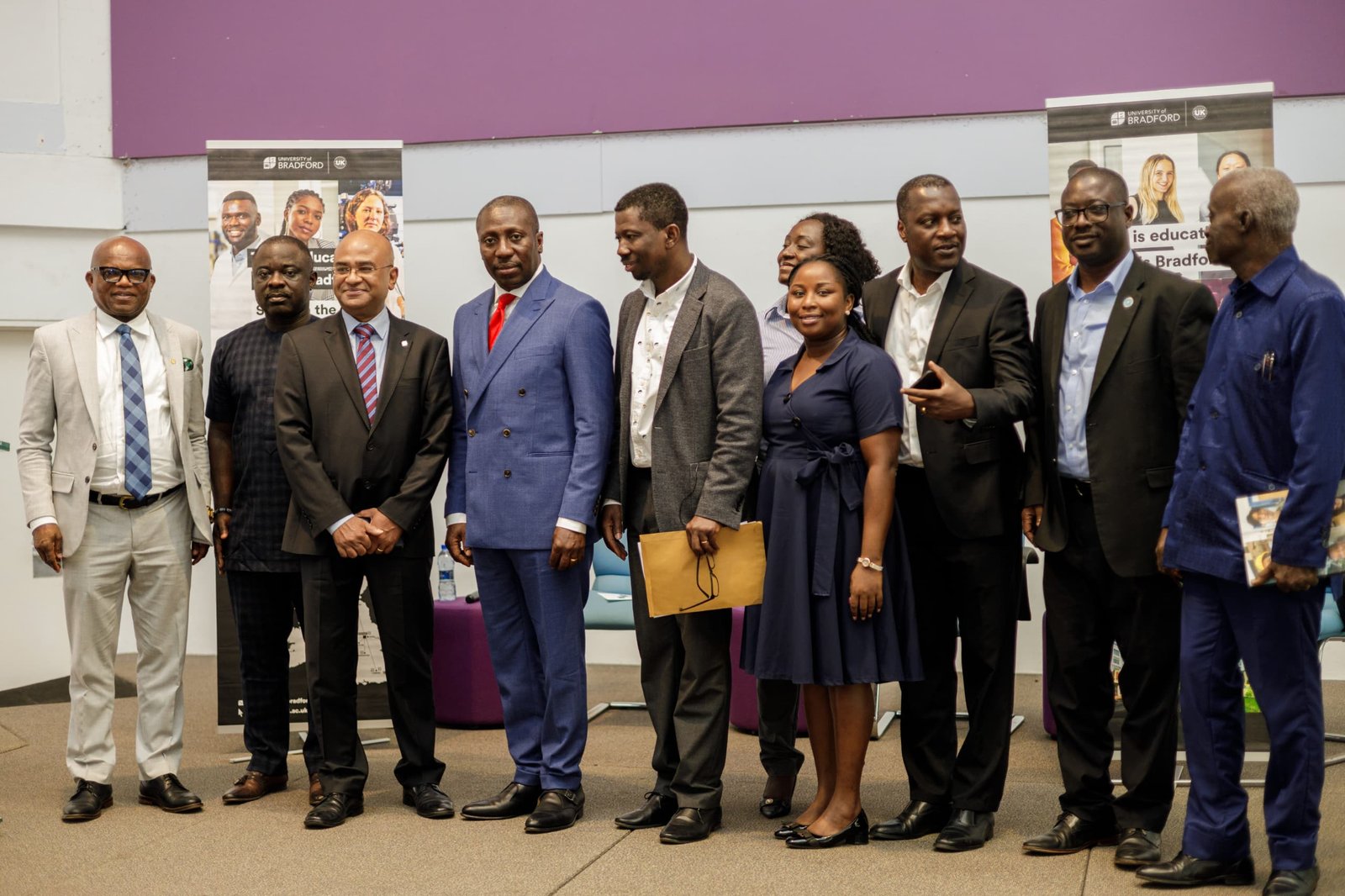
…not carved in stone, but written in soil, sweat, and shared responsibility
Environment is no one’s property to destroy; it’s everyone’s responsibility to protect.
Mohith Agadi
I grew up in a mining town in Ghana, where the red earth clung to everything, and the rhythm of life pulsed in sync with the mine’s operations. For well over a decade, that landscape wasn’t
just my home; it was my classroom. I didn`t have the vocabulary of environmental stewardship or integrity at the time, but I saw what happened when corners were cut. I watched streams that once ran clear turn cloudy after heavy rains from the open-cast methods.
I saw hillsides stripped bare, and heard elders speak wistfully of forests that used to hum with birdsong. And yet, I also witnessed the pride of a community built on hard work, resilience, and the economic lifeline the mine provided. In all these, Psalm 24:1(The earth is the LORD`s and everything in it, the world, and all who live in it; – NIV) always stayed strong with me as a pre-teen and subsequently a teenager. I must unequivocally indicate that overall, the state of mining at the time was “gentle” and was nowhere near the environmental genocide (emphasis mine) we are witnessing today.
Environmental stewardship has become even more critical in our dispensation, and it is so crucial at the top of the UN`s agenda. COP 30 in Belém, Brazil, like all previous COPs, has this agenda as issues on climate are handled. The theme centres on accelerating climate action and implementation through a strategic agenda of six pillars: transitioning energy, industry, and transport; stewarding forests, oceans, and biodiversity; transforming agriculture and food systems; building resilience for cities and water; fostering human and social development; and unleashing enablers like finance, technology, and capacity-building
The earlier dissonance makes me outline 30 commandments not as divine edicts delivered from a mountaintop, but as hard-won wisdom, pressed into being by red soil, honest sweat, and the quiet insistence of shared responsibility. They are not laws. They are invitations. Not perfection, but practice.

30 Commandments on Environmental Stewardship
- You shall plant a tree not for carbon credits, but as a covenant: I will be here to water you
- You shall walk barefoot on soil at least once a month, to remember you are not above the earth, but of it
- You shall learn the name of one local plant, bird, or river in your indigenous language, and teach it to a child
- You shall question every development project: who benefits, who bears the cost, whose knowledge is erased?
- You shall sit quietly for 10 minutes in a place you pass daily but never truly see, like the roadside gutter or the vacant lot.
- You shall remember you are not saving the planet, you are protecting your next-of-kin from harm you helped create
- You shall treat water as sacred, shared, and never wasted, even when the tap flows freely
- You shall repair before you replace, honouring the hands that made it, and the resources that birthed it.
- You shall say “no” to single-use plastic, not out of guilt but out of respect for the fisherman downstream
- You shall translate climate science into proverbs, stories, and songs. So it lives in the heart, not just the report
- You shall amplify the voices of elders, farmers, and fisherfolk, not as “victims” but as “knowledge-keepers”
- You shall call out greenwashing not with rage but with relentless clarity
- You shall turn your workplace parking into a community garden plot, even if it`s just two raised beds
- You shall mentor one young person in “practical earth-keeping”, composting, rainwater harvesting, and advocacy.
- You shall vote and hire, and invest with the next generation in mind
- You shall eat one meal a week grown within 50 kilometres of your home.
- You shall drive as if the air your child breathes is in your exhaust pipe. Smooth acceleration, timely maintenance, one less solo trip. That is climate action.
- You shall challenge the myth of “African apathy” toward climate change. We are not passive. We are practising in backyard gardens, in rainwater jars, in seed-saving circles, while waiting for the world to catch up.
- You shall teach children that stewardship is strength, not softness. The strongest leaders do not conquer nature. They collaborate with it.
- You shall turn unused space, your office rooftop, your church yard, your school compound, into a place of growth
- You shall advocate for eco-literacy in staff development, especially for entry levels, national service personnel and interns
- You shall support local artisans who use reclaimed materials like scrap metal, discarded fabric, and fallen wood. Their craft is circular economy in action. Pay fairly. Promote boldly
- You shall create “quiet hours” in your home or office, no engines, no screens, just presence. Stillness is where we hear the earth’s whisper and our own conscience.
- You shall restore not just land, but relationship. Apologise to the river you polluted. Thank the soil you feed. Reconciliation begins with acknowledgement.
- You shall celebrate small returns: the frog in the garden after rain, the mango tree fruiting again, the community well running clear. Joy is resistance. Gratitude is fuel.
- You shall forgive yourself for the plastic you used, the flight you took, the silence you kept. Stewardship is not purity. It is returning, again and again, to the path.
- You shall name the system, not just the symptom. It is not bad weather. It is extractive economics. Not “littering.” It is designed for disposability. Speak precisely. Act accordingly.
- You shall unplug not just devices, but the illusion that “more” equals “better.” A phone charged to 80% lasts longer. A life lived at 80% capacity leaves room for wonder.
- You shall remember: you are not alone. From the mechanic in Suame Magazine tuning engines for efficiency, to the trotro mate refusing single-use sachets, to the grandmother teaching grandchildren to read the clouds, we are already building the world we need. Keep going.
- You shall rest on the Sabbath, on holidays, on quiet Sundays, for burnout is the enemy of Stewardship. Even the land needs fallow time.
Ending
The earth does not need only flawless prophets. It also needs faithful participants, people willing to get their hands dirty, their hearts broken, their hope renewed, not in some distant future, but today, in the ordinary sacredness of soil, sweat, and shared responsibility.
- Which commandment will you try this week?
- Which one will you teach?
- Which one calls your name?
Connect with him via: [email protected]
LinkedIn: Ebenezer Asumang. [ https://www.linkedin.com/in/ebenezer-asumang/ ] data-medium-file=https://i0.wp.com/thebftonline.com/wp-content/uploads/2025/11/Screenshot-2025-11-21-160407.png?fit=300,259&ssl=1 data-large-file=https://i0.wp.com/thebftonline.com/wp-content/uploads/2025/11/Screenshot-2025-11-21-160407.png?fit=314,271&ssl=1 class=size-medium wp-image-250832 src=https://i0.wp.com/thebftonline.com/wp-content/uploads/2025/11/Screenshot-2025-11-21-160407.png?resize=300,259&ssl=1 alt= width=300 height=259 srcset=https://i0.wp.com/thebftonline.com/wp-content/uploads/2025/11/Screenshot-2025-11-21-160407.png?resize=300,259&ssl=1 300w, https://i0.wp.com/thebftonline.com/wp-content/uploads/2025/11/Screenshot-2025-11-21-160407.png?resize=250,216&ssl=1 250w, https://i0.wp.com/thebftonline.com/wp-content/uploads/2025/11/Screenshot-2025-11-21-160407.png?w=314&ssl=1 314w sizes=(max-width: 300px) 100vw, 300px />
Connect with him via: [email protected]
LinkedIn: Ebenezer Asumang. [ https://www.linkedin.com/in/ebenezer-asumang/ ]
The post Sustainability Corner with Ebenezer ASUMANG: My 30 commandments on environmental stewardship appeared first on The Business & Financial Times.
Read Full Story



















Facebook
Twitter
Pinterest
Instagram
Google+
YouTube
LinkedIn
RSS